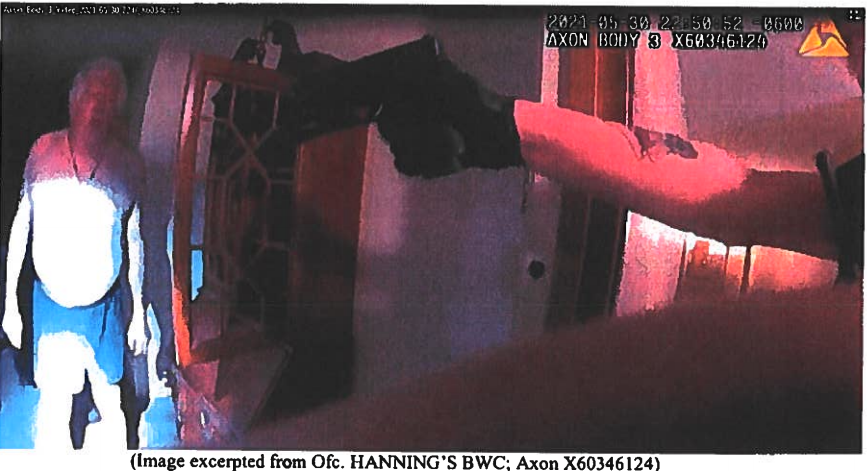
- July 14: 75-year-old Idaho Springs man recovered after being tased without warning by police
- July 16: Idaho Springs police officer who tased 75-year-old man without warning has been fired
- July 23: Body camera footage showing violent arrest of 75-year-old Idaho Springs man released
- July 26: Idaho Springs police sued over violent arrest of 75-year-old man
A 75-year-old man who was tased without warning by an Idaho Springs police officer is still in the hospital six weeks after the incident.
Michael Clark remains in recovery following his May 30 encounter with Idaho Springs police officer Nicholas Hanning.
Hanning is facing one charge of third-degree assault on an at-risk adult, a class 6 felony, for his role in the arrest. If convicted, Hanning could face one year to 18 months in prison and a fine of up to $100,000.
Sarah Schielke, an attorney with The Life & Liberty Law Office, is representing Clark. She says there’s an underlying culture among some officers who have the mindset of “I can do whatever I want” if somebody doesn’t comply.
“It's not always going to be an elderly person, it's just the more vulnerable people where we’re going to have the worst outcomes,” Shcielke said.
Another high-profile case of police assault on an elderly citizen
Schielke is also representing Karen Garner, a 73-year-old woman with dementia who was arrested by Loveland Police last year after leaving a WalMart with $14 of unpaid merchandise.
The officers involved in Garner’s arrest have resigned from their jobs and are facing criminal charges.
Schielke says two cases of police assault on elderly citizens isn’t enough for her to see a pattern, but she does think officer body camera footage is playing a role in holding officers accountable.
“I think there is a culture that is not just limited to Idaho Springs and Loveland. I think it's a bigger culture of feeling entitled to use force when citizens don't immediately comply or don't immediately subordinate themselves to the authority the officer's trying to exert,” Schielke said. “And how ingrained it must be that they know they're being recorded now, and they're still doing it anyway.”
How Clark’s encounter happened
Clark’s encounter with police happened after his apartment neighbor called the police and claimed he had hit her after a noise dispute late at night on May 30. Schielke says Clark never left his apartment or struck the woman but did bang on his wall when she was being loud that night.

Police arrived and questioned the neighbor. Then, Hanning knocked on Clark’s door but did not announce that he was a police officer, according to his arrest affidavit. Clark opened his door holding what was described as a “Hawaiian sword.” Schielke said Clark did not know police were at his door and answered with the sword to protect himself, thinking it might be the neighbors at his door.
After being asked to put down the weapon, Clark set it on a shelf in his apartment. In less than 30 seconds and without warning, Hanning tased Clark who fell and hit his head on a dining chair.
Clark suffered heart complications and a stroke from the taser, according to Schielke. He also had a burst appendix and required surgery on his neck. Schielke said his health has continued to deteriorate.
The arrest affidavit for Hanning has screenshots and text descriptions of the video. Clear Creek County Judge Cynthia Jones ordered the district attorney to release the full body camera footage no later than July 29. The case is one of the first to test the state’s new law requiring the release of officer body camera footage in allegations of police misconduct.
“Our dad hasn’t been able to sleep in his own bed since May 30,” Clark’s family said in a statement. “He’s lost everything. All independence. All happiness. Every second and every minute that goes by with the police being allowed to keep the world in the dark and make everyone believe our dad might have done something to deserve this is torture.”









